As the FIFA Club World Cup 2025 advances towards the Round of 16, the revamped format has generated numerous compelling narratives. From an expanded field of participating teams to a redesigned trophy, multiple host cities, and even the introduction of referee cams, the competition in the United States aims to mirror the prestige and excitement of the quadrennial World Cup.
Organizers have hailed the tournament as "a celebration of hope, excellence, and pride," uniting clubs, players, and fans through their shared passion for the sport. With several debutants and the tournament now spanning a month, its significance has undeniably grown.
The 2025 edition boasts a diverse lineup, featuring teams from all six confederations: 12 from Europe, 6 from South America, 4 each from Africa, Asia, and North/Central America and the Caribbean, 1 from Oceania, and 1 from the host nation.
With the group stage concluded and the final 16 teams determined, this Club World Cup has already delivered its share of upsets, David vs. Goliath clashes, and moments of intense competition, both on and off the field.

Auckland City, ranked 4,971st in the Opta Power Rankings, entered the Club World Cup as the lowest-ranked team. They found themselves in a group with powerhouses like Bayern Munich, Benfica, and Boca Juniors.
Composed largely of amateurs who play in New Zealand's Northern League (a league of just 12 teams), Auckland City faced daunting odds.
Their campaign began with a harsh 0-10 defeat against Bayern Munich, the tournament's biggest margin of victory, followed by a 0-6 loss to Benfica.
Facing Argentinian giants Boca Juniors in their final match, Auckland City, already eliminated, had nothing to lose. In a classic underdog story, they defied expectations and denied Boca Juniors a spot in the Round of 16 with a 1-1 draw. The result was particularly sweet given the 4,819-point ranking difference and Boca's storied history.
Lionel Messi's Inter Miami, grouped with formidable opponents such as Porto, Al Ahly, and Palmeiras, were initially considered unlikely to advance. However, led by Messi and supported by fellow stars Luis Suarez, Jordi Alba, and Sergio Busquets, they defied expectations and secured a place in the Round of 16, finishing second in Group A.
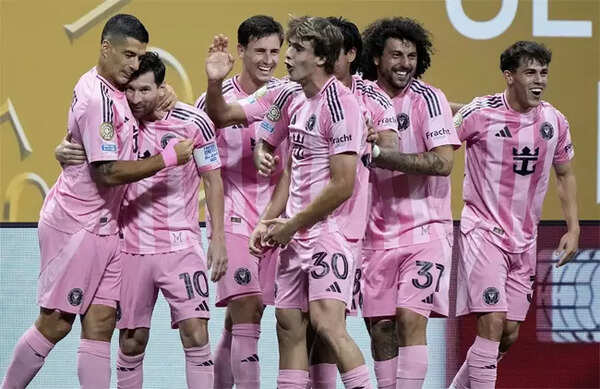
Despite securing only one win, it proved sufficient for qualification. After a draw against Al Ahly, Miami faced Porto. Messi's brilliance, highlighted by a stunning free kick, led them to a 2-1 victory. A 2-2 draw against Palmeiras sealed their spot in the next round.
Tensions flared during the final matchday in Group E, where River Plate needed a win against Inter Milan to advance. Inter Milan, however, dashed their hopes. The final whistle sparked a confrontation between River's Marcos Acuna and Inter's Denzel Dumfries, requiring intervention from both teams and support staff. The animosity stemmed from a previous encounter three years prior.
The "heat" wasn't just limited to on-field clashes. Extreme temperatures forced teams to implement cooling measures, such as ice baths and cold towels. Borussia Dortmund even kept their substitutes in the locker room during their match against Mamelodi Sundowns to shield them from the scorching conditions, with their coach describing the environment as a "sauna." Thunderstorms caused delays in at least five matches.
Beyond the weather, the presence of ICE (US Immigration and Customs Enforcement) and Customs and Border Protection (CBP) marked a first for the tournament, requiring non-citizens to provide proof of legal status to attend games.
With the 2026 FIFA World Cup, co-hosted by the United States, Mexico, and Canada, less than a year away, the Club World Cup has highlighted potential challenges. Issues ranging from pitch quality to weather conditions have raised concerns about the preparedness for the larger tournament.
Real Madrid's Jude Bellingham criticized the pitch conditions, stating, "The pitches aren’t great here. The pitches aren’t great at all," after his team's match against Pachuca.
Despite the emergence of underdog stories and the expanded field of teams, the tournament continues to be dominated by Europe's elite. Teams like Real Madrid and Manchester City remain strong contenders for the title. However, five teams – Seattle Sounders, Urawa Reds, Ulsan, Wydad AC, and Pachuca – were eliminated without earning a single point.
Newer articles
Older articles
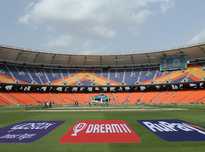 Gujarat Cricket Association Set to Introduce T20 Tournament in 2025-26 Season
Gujarat Cricket Association Set to Introduce T20 Tournament in 2025-26 Season
 Pant's Explosive Innings Earns Praise from Greg Chappell, Draws Gilchrist Comparisons
Pant's Explosive Innings Earns Praise from Greg Chappell, Draws Gilchrist Comparisons
 India's Harshit Rana Released from Squad Ahead of Second Test vs. England in Birmingham
India's Harshit Rana Released from Squad Ahead of Second Test vs. England in Birmingham
 Prithvi Shaw Admits to Career Downturn: Wrong Choices and Loss of Focus Derailed Cricket Trajectory
Prithvi Shaw Admits to Career Downturn: Wrong Choices and Loss of Focus Derailed Cricket Trajectory
 Gavaskar Calls for Kuldeep Yadav's Inclusion in Second Test Amid Bumrah Fitness Doubts, Eyes Middle Order Fix
Gavaskar Calls for Kuldeep Yadav's Inclusion in Second Test Amid Bumrah Fitness Doubts, Eyes Middle Order Fix
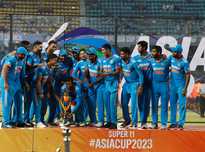 Asia Cup 2025: September Start Looms as Optimism Surges Despite India-Pakistan Tensions
Asia Cup 2025: September Start Looms as Optimism Surges Despite India-Pakistan Tensions
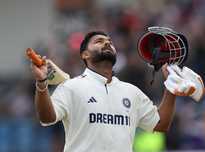 Rishabh Pant Redefining Cricket: Greg Chappell Hails Indian Star's Revolutionary Batting
Hoặc
Greg Chappell: Rishabh Pant's Unorthodox Style is Revolutionizing Test Cricket
Rishabh Pant Redefining Cricket: Greg Chappell Hails Indian Star's Revolutionary Batting
Hoặc
Greg Chappell: Rishabh Pant's Unorthodox Style is Revolutionizing Test Cricket
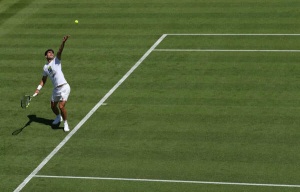 Wimbledon Serves Up India Strategy: Courts Cricket Fans in Growth Push
Wimbledon Serves Up India Strategy: Courts Cricket Fans in Growth Push
 ICC Test Rankings: Pant Soars to Career Best, Bumrah Retains Top Spot, Root Still Leads Batters
ICC Test Rankings: Pant Soars to Career Best, Bumrah Retains Top Spot, Root Still Leads Batters
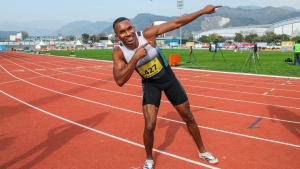 Animesh Kujur Sprints to Glory, Shatters Indian 100m Record in Greece
Animesh Kujur Sprints to Glory, Shatters Indian 100m Record in Greece